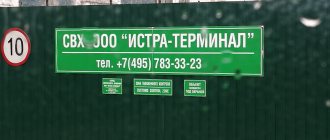International trade is a privilege of the modern world, which gives every person the opportunity to be content with goods from abroad. However, foreign economic activity imposes special obligations on its participants. One of these features is customs clearance of goods. This is a rather complex type of activity and therefore the execution of tasks is most often entrusted to authorized employees, and in the article we tell in detail who a customs representative is, what he does, his rights and obligations, as well as his responsibility to the client.
What is customs clearance
Without exception, all goods or other shipments (including vehicles) crossing the border of the Russian Federation must undergo customs control. It doesn't matter:
- what type of transport is the cargo transported (railway, air, road, sea or other);
- who owns the cargo or who is its recipient (legal entity or individual);
- what is the end point (even transit cargo is subject to control).
Customs clearance (“customs clearance of cargo”, “customs clearance”, “customs declaration”) is a set of measures for the preparation and provision of accompanying or other documents confirming the legality of crossing the border (necessary for passing customs control).
The purpose of customs control is to check vehicles and/or transported goods crossing the state border for compliance with the current agreements between the countries participating in the exchange and the norms of legislative acts regulating the scope of customs regulation.
Federal Customs Service
Having problems receiving the service?
Refused to accept documents or provide services, violated deadlines, require additional documents or payment?
On our portal you can complain about poor quality services. Pre-trial (extrajudicial) procedure for appealing decisions and actions (inaction) of the Federal Customs Service of Russia, as well as its officials
Information for the applicant about his right to file a complaint against the decision and (or) action (inaction) of the federal executive body and (or) its officials in the provision of public services
100. The applicant has the right to file a complaint about a violation of the procedure for the provision of public services, expressed in unlawful decisions and actions (inaction) of the Federal Customs Service of Russia and its officials in the provision of public services (hereinafter referred to as the complaint).
Subject of the complaint
101. The applicant may file a complaint, inter alia, in the following cases:
a) violation of the deadline for registering the applicant’s request for the provision of a public service;
b) violation of the deadline for the provision of public services;
c) requirements for the applicant to submit documents not provided for by the regulatory legal acts of the Russian Federation for the provision of public services;
d) refusal to accept documents, the submission of which is provided for by regulatory legal acts of the Russian Federation for the provision of public services;
e) refusal to provide a public service, if the grounds for refusal are not provided for by federal laws and other regulatory legal acts of the Russian Federation adopted in accordance with them;
f) requirements for the applicant to pay, when providing a public service, a fee not provided for by the regulatory legal acts of the Russian Federation;
g) refusal of the Federal Customs Service of Russia or its official to correct typographical errors and errors in documents issued as a result of the provision of public services or violation of the established deadline for such corrections.
State authorities and officials authorized to consider the complaint to whom the complaint may be sent
102. The Federal Customs Service of Russia appoints officials authorized to consider complaints, who ensure the receipt and consideration of complaints.
103. The Federal Customs Service of Russia provides:
a) informing applicants about the procedure for appealing decisions and actions (inaction) of the Federal Customs Service of Russia and its officials by posting information on stands in places where public services are provided, on the official website of the Federal Customs Service of Russia on the Internet, in the federal state information system "Unified Portal of State and municipal services (functions)";
b) advising applicants on the procedure for appealing decisions and actions (inaction) of the Federal Customs Service of Russia and its officials, including by telephone, e-mail, and in person;
c) formation and submission quarterly to a higher authority of reports on complaints received and considered (including the number of satisfied and unsatisfied complaints);
d) equipping places for receiving complaints.
Procedure for filing and consideration of a complaint
104. The complaint is submitted to the Federal Customs Service of Russia in writing, including when receiving the applicant in person, or electronically.
105. The complaint must contain:
a) the name of the body providing the public service, or information about the official of the body providing the public service, whose decisions and actions (inaction) are being appealed;
b) name, information about the location of the applicant, as well as contact telephone number(s), email address(es) (if available) and postal address to which the response should be sent to the applicant (except for the case when the complaint is sent in a manner specified in subparagraph “c” of paragraph 108 of the Administrative Regulations);
c) information about the appealed decisions and actions (inactions) of the Federal Customs Service of Russia and its officials;
d) arguments on the basis of which the applicant does not agree with the decision and action (inaction) of the Federal Customs Service of Russia and its officials. The applicant may submit documents (if any) confirming the applicant’s arguments, or copies thereof.
106. If the complaint is submitted through a representative of the applicant, a document confirming the authority to take actions on behalf of the applicant is also submitted. The following may be submitted as a document confirming the authority to carry out actions on behalf of the applicant:
a) a power of attorney issued in accordance with the legislation of the Russian Federation, certified by the seal of the applicant and signed by the head of the applicant or a person authorized by this head;
b) a copy of the decision on appointment or election or order on the appointment of an individual to a position, according to which such an individual has the right to act on behalf of the applicant without a power of attorney.
107. Complaints in written form are accepted by the Federal Customs Service of Russia.
Sending a complaint in writing is carried out by mail or directly to the expedition of the Federal Customs Service of Russia (mail box in the Reception Office of the Federal Customs Service of Russia) at the address: st. Novozavodskaya, 11/5, Moscow, 121087.
If a complaint is filed in person, the applicant’s representative presents a document proving his identity in accordance with the legislation of the Russian Federation.
The time for receiving complaints coincides with the time for providing public services.
108. A complaint can be submitted electronically by the applicant through:
a) the official website of the Federal Customs Service of Russia on the Internet;
b) federal state information system “Unified portal of state and municipal services (functions)”;
c) the portal of the federal state information system, which ensures the process of pre-trial (out-of-court) appeal of decisions and actions (inaction) committed in the provision of state and municipal services by bodies providing state and municipal services, their officials, state and municipal employees (hereinafter referred to as the pre-trial system appeals) using the Internet.
109. When filing a complaint electronically, the documents specified in paragraph 106 of the Administrative Regulations can be submitted in the form of electronic documents signed with an electronic signature, the type of which is provided for by the legislation of the Russian Federation, while an identification document of the applicant’s representative is not required.
110. The complaint is being considered by the Federal Customs Service of Russia.
A complaint against a decision made by the head of the Federal Customs Service of Russia is submitted to a higher authority (in order of subordination) and is considered in accordance with the provisions of this section.
111. If the competence of the Federal Customs Service of Russia does not include making a decision on a complaint filed by the applicant, within 3 working days from the date of its registration, the Federal Customs Service of Russia sends the complaint to the body authorized to consider it and informs the applicant in writing about the redirection of the complaint.
In this case, the period for consideration of the complaint is calculated from the date of registration of the complaint with the body authorized to consider it.
Time limits for consideration of a complaint
112. A complaint received by the Federal Customs Service of Russia must be registered no later than the next working day from the date of its receipt.
The complaint is considered within 15 working days from the date of its registration.
In the event of an appeal against the refusal of the Federal Customs Service of Russia or its official to accept documents from the applicant or to correct typos and errors, or in the event of an appeal by the applicant for violating the established deadline for such corrections, the complaint is considered within 5 working days from the date of its registration.
List of grounds for suspending consideration of a complaint if the possibility of suspension is provided for by the legislation of the Russian Federation
113. The legislation of the Russian Federation does not provide for grounds for suspending the consideration of a complaint.
Result of the complaint consideration
114. Based on the results of consideration of the complaint, the Federal Customs Service of Russia makes a decision to satisfy the complaint or to refuse to satisfy it. This decision is made in the form of an act of the Federal Customs Service of Russia.
115. When satisfying a complaint, the Federal Customs Service of Russia takes comprehensive measures to eliminate identified violations, including issuing the result of a public service to the applicant, no later than 5 working days from the date of the decision, unless otherwise established by the legislation of the Russian Federation.
116. The Federal Customs Service of Russia refuses to satisfy the complaint in the following cases:
a) the presence of a court or arbitration court decision that has entered into legal force on a complaint about the same subject and on the same grounds;
b) filing a complaint by a person whose powers have not been confirmed in the manner established by the legislation of the Russian Federation;
c) the presence of a decision on the complaint made earlier in relation to the same applicant and on the same subject of the complaint.
117. The Federal Customs Service of Russia has the right to leave a complaint unanswered in the following cases:
a) the presence in the complaint of obscene or offensive language, threats to the life, health and property of the official, as well as members of his family;
b) inability to read any part of the text of the complaint, last name, first name, patronymic (if any) and (or) postal address of the applicant indicated in the complaint.
118. If, during or as a result of consideration of the complaint, signs of an administrative offense are established, provided for in Article 5.63 of the Code of the Russian Federation on Administrative Offenses (Collected Legislation of the Russian Federation, 2002, No. 1 (Part 1), Art. 1; 2011, No. 49 (Part 5), Article 7061; 2012, No. 31, Article 4322; 2013, No. 52 (Part 1), Article 6995), or signs of a crime, the official authorized to consider complaints immediately sends the relevant materials to the prosecutor's office.
The procedure for informing the applicant about the results of consideration of the complaint
119. The response based on the results of consideration of the complaint is sent to the applicant no later than the day following the day the decision was made, in writing.
If the complaint was sent in the manner specified in subparagraph “c” of paragraph 108 of the Administrative Regulations, the response to the applicant is sent through the pre-trial appeal system.
120. The response based on the results of consideration of the complaint shall indicate:
a) the name of the body providing the public service that examined the complaint, position, surname, name, patronymic (if any) of its official who made the decision on the complaint;
b) number, date, place of the decision, including information about the official whose decision or action (inaction) is being appealed;
c) name of the applicant;
d) the grounds for making a decision on the complaint;
e) the decision taken on the complaint;
f) if the complaint is found to be justified, the deadline for eliminating the identified violations, including the deadline for providing the result of the public service;
g) information on the procedure for appealing a decision taken on a complaint.
121. The response based on the results of consideration of the complaint is signed by the official of the Federal Customs Service of Russia authorized to consider the complaint.
At the request of the applicant, a response based on the results of consideration of the complaint may be submitted no later than the day following the day the decision was made, in the form of an electronic document signed with the electronic signature of the official authorized to consider the complaint.
Procedure for appealing a decision on a complaint
122. The decision of the Federal Customs Service of Russia on a complaint can be appealed in court.
The applicant’s right to receive information and documents necessary to substantiate and consider the complaint
123. The applicant has the right to receive comprehensive information and documents necessary to substantiate and consider the complaint.
Ways to inform applicants about the procedure for filing and considering a complaint
124. The Federal Customs Service of Russia ensures that applicants are informed about the procedure for appealing decisions and actions (inaction) of the Federal Customs Service of Russia and its officials by posting information on stands in places where public services are provided, on the official website of the Federal Customs Service of Russia on the Internet, in the federal state information system " Unified portal of state and municipal services (functions)
Participants
Who can participate in customs clearance:
- individual senders/recipients (part of the goods sent and/or received by them may belong to the list of goods for personal use, for which simplified control procedures are applied and some or all duties are cancelled);
- legal entities senders/recipients (exchange between legal entities implies the presence of written agreements and more strict declaration of shipments, as well as control of payments);
- other organizations that are not legal entities (including individual entrepreneurs);
- operators, carriers and other intermediaries in interaction (including customs representatives);
- customs authority (post or customs).
Stage 3: Let's talk in person
The conversation will help predict how comfortable it will be to work further. Ask the broker about the peculiarities of customs clearance in a particular region, about guarantees of meeting deadlines and cargo safety. Confident and comprehensive answers are what you need.
And pay attention to the mode in which the broker is ready to provide information about the progress of customs clearance. If a personal manager is available, say, only from 9.00 to 21.00, then this can be fatal for working with perishable cargo, because hours count. Give preference to those who are ready to be in touch 24/7.
Terms
Customs broker (representative ) is a legal entity included in the Register of Customs Representatives, offering customs clearance services. Such a company must have: an official license giving the right to engage in this type of activity, an insurance contract (the minimum amount is fixed by law). The staff must have at least 2 certified declarant employees.
Declarant is an individual or legal entity entitled to submit information about imported or exported goods in the format established by current legislation. The declarant has the right to change the customs procedure.
Customs is a government body that ensures proper control of goods and vehicles moving across the border, as well as a number of related functions, such as ensuring economic security, suppressing smuggling, maintaining statistics, collecting duties, etc. In addition to customs, customs authorities also include regional departments and posts.
Customs procedure is a set of rules that determine the procedure for actions (operations) with goods/cargo. The main operations include:
- export;
- import;
- transit;
- re-export/re-import;
- temporary import/export;
- processing (on the territory of customs, outside it, for domestic consumption);
- destruction;
- storage in a customs or free warehouse;
- refusal in favor of the state;
- free trade;
- free customs zone;
- special procedure.
Duty is a mandatory payment levied when moving goods across the border.
Declaration is a document drawn up in a certain form, necessary for the release of goods from customs.
The Customs Union is an agreement between the participants of the Eurasian Economic Union (EAEU, includes 5 countries: Russia, Belarus, Kyrgyzstan, Kazakhstan, Armenia), which defines uniform rules for the movement of goods/cargo between the participants, as well as outside the territory of the union.
Services of a customs representative in the customs of the Russian Federation
Customs representative services
can be provided immediately after the conclusion of an agreement, which stipulates the obligations of the parties and their legal responsibility for the actions taken.
The services of a customs representative include: analysis of goods to be cleared at customs, determination of the list of necessary documents that will be submitted to the customs authority along with the declaration, determination of the code of the declared goods in the Unified Foreign Economic Activity System, calculation of the amount of customs duties and filling out the customs declaration.
Our highly qualified customs clearance specialists—customs declarants—work daily with any type of cargo and types of goods, and have knowledge in the field of customs legislation, logistics and merchandising. They know all the intricacies of clearing goods within all possible customs procedures, and will help you go through all stages of moving products across the border, minimizing monetary and time costs.
For example, the cost of professionally filling out a customs declaration in our company starts from 500 rubles (the price is valid for individuals). The cost of filling out a customs declaration for the clearance of goods of legal entities is more expensive. We recommend ordering the services of a customs representative, which includes full support of the cargo from the moment it is placed in the temporary storage warehouse until it is released from customs under the selected customs procedure, namely:
- services of a professional customs declarant for filling out a customs declaration;
- calculation of customs duties;
- assistance in preparing a package of necessary documents (certificates, permits, licenses);
- representation services at customs (for example, during customs inspection of declared cargo, contacts with customs on behalf of the client);
- assistance in the release of declared goods under the selected customs procedure.
Our company is one of the few companies represented on the Russian market that works with any participants in foreign trade activities:
- Individuals
- Legal entities
- Individual entrepreneurs
Documents and information for customs clearance of cargo and goods in Russian customs
- List of documents for registration of an individual at customs (View)
- List of documents for registration of a Legal entity at customs (View)
- List of documents for registration of an individual entrepreneur at customs (View)
- List of documents for customs clearance “Import” (View)
- List of documents for customs clearance “Export” (View)
If you need the services of a customs representative or find out the cost of services, we will help! Read more >>>
Our highly qualified customs clearance specialists or customs declarants, who work daily with any type of cargo and types of goods, will do their work quickly and at the proper level and will help you:
- Collect the necessary package of documents for customs
- Free consultation on customs clearance of cargo and goods
- We will calculate the customs duties required for payment and, if necessary, pay for the client
- They will check all non-tariff measures and help you obtain the necessary permits and certificates
- Will prepare and register customs declarations at customs
- If necessary, we will conduct preliminary inspections or customs inspections
- And any other related services related to the registration of goods.
We provide customs representative services every day in any city and customs office in Russia
Order of conduct
The main stages of the customs clearance procedure for legal entities:
- Registration as a foreign trade participant (required if the participant is applying for the first time).
- Submission of the declaration and accompanying documents. There are fines and other penalties for filing false information.
- Checking the specified product nomenclature codes in the declaration for correctness. The size of the duty, the possibility of reducing VAT and the application of other benefits will depend on the classification code.
- Checking the declared value. The customs authority may request documents confirming pricing.
- Payment of duties and taxes. Without their payment, the goods will not be able to cross the border. In case of delay, a penalty may be charged.
- The customs control procedure itself (if necessary, an inspection can be carried out with the drawing up of a corresponding act).
- Currency control. Conducted by authorized banks if it is necessary to verify the correctness of international payments under contracts/agreements, as well as if it is necessary to ensure guaranteed settlements (for example, with the use of borrowed funds: letters of credit, guarantees, etc.).
In case of refusal to clear goods at customs, the cargo is placed in temporary storage in special warehouses until the defects are eliminated or other procedures are completed (destruction, processing, etc.).
Due to the lack of experience in correctly drawing up declarations and creating a package of mandatory documents (in the absence of specialized specialists on staff), legal entities often resort to brokerage services. Professional intermediaries carry out the preparation of turnkey documents and increase the likelihood of quickly completing all stages of registration.
Advantages of a customs representative when declaring goods
An official customs representative will help the client reduce the time for customs clearance of goods and cargo and minimize financial costs for customs clearance.
Contacting a customs representative and cooperating with him has undeniable advantages:
- The EAEU customs representative has a number of effective schemes for the clearance of goods and cargo of different categories
- Customs declaration of goods by a customs representative occurs according to a repeatedly worked out scheme
- Payment of customs duties by the customs representative is always made on time and in the amounts established by regulations
- The customs representative of foreign trade activities has professional connections in the relevant structures and organizations, which allows for prompt resolution of possible controversial issues
- The customs representative will help you choose the optimal route for the cargo and determine the most convenient place for customs clearance or customs clearance of goods to speed up the customs clearance process
- Cooperation with a customs representative allows you to declare the goods of clients of logistics companies, which allows you to have advantages over others and make money on it.
Our company provides professional declaration services by a customs representative in any customs procedures “modes”:
- Import
- Export
- Registration of customs declaration
- Temporary import/export
- bonded warehouse
- Other customs procedures
We carry out customs clearance of any cargo and goods at any customs offices and in any cities of the Russian Federation - daily and around the clock!
Terms of customs clearance
The EAEU Customs Code determines the maximum time for the release of goods in the presence of a correctly completed declaration (Article 119) - no more than 4 hours from the moment of receipt of the package of documents or from the moment the goods are placed in the control zone (if the declaration is submitted in advance).
However, the deadlines may move:
- For 1 day, if there are less than 4 hours left until the end of the working day.
- For 1-3 days, if there is a need to make changes to the information in the declaration (calculation of the period begins from the moment the correct document is received).
- For 1-10 days, if more detailed control of the cargo is required.
For a longer period by decision of the head of the customs authority (for example, to conduct an examination).
Goods placed in temporary storage can remain in the warehouse for no more than 4 months (for certain categories of goods, the period may be reduced, for example, for perishable products). Further, if permission to cross the border is not obtained, such goods are detained by customs.
Detention cannot last more than 30 days (perishable products cannot be detained for more than 24 hours). After the expiration of the detention period, unclaimed goods are destroyed, used or sold (Article 382 of the EAEU Labor Code).
Documents required for import
Sample list for legal entities:
- Contract or supply agreement (with all additions).
- Information about control at the bank (if the contract/agreement amount is over 3 million rubles).
- Invoice (invoice + transfer if necessary).
- Technical description of the product (safety data sheets for chemical industry products).
- Packing list.
- Labeling (for goods requiring mandatory certification).
- Invoice (the form depends on the type of transport).
- Permits (veterinary or phytosanitary certificates, etc.).
- Certificates of origin.
- Documents confirming payment of duties and taxes.
- Documents confirming payment for the goods (if provided for in the contract/agreement).
- Insurance (for CIP or CIF deliveries).
- Transport contract.
- Documents confirming the real value of the goods (if necessary: export declaration, manufacturer’s price list).
Documents for export
- Contract or supply agreement (with all additions).
- Information about control at the bank (if the contract/agreement amount is over 6 million rubles).
- Invoice (invoice + transfer if necessary).
- Technical description of the product (safety data sheets for chemical industry products).
- Invoice (the form depends on the type of transport).
- Packing list.
- Certificates of origin.
- Permits (veterinary or phytosanitary certificates, etc.).
- Documents confirming payment for the goods (if provided for in the contract/agreement).
Penalties for violations
Violations in the field of customs are determined primarily by the Code of Administrative Offenses of the Russian Federation. These are mainly chapters 15 (in the field of finance and taxes) and 16 (in the field of customs).
The following measures can be applied:
- warnings;
- fines;
- paid or gratuitous (confiscation) seizure of the subject of the offense;
- arrest;
- deprivation of special rights;
- expulsion from the Russian Federation;
- suspension of activities;
- disqualification.
Fines for legal entities can reach 500 thousand rubles.
Stage 2: reduce the list to a shortlist
You've made a list of a dozen companies, but how do you choose one? Invite each broker to complete two calculation tasks: one – close to the conditions of the planned delivery, the second – obviously problematic or even impossible.
The results of the first task will provide an opportunity to compare rates, evaluate the level of attention to detail and the broker's honesty. Are all mandatory expense items taken into account or are some left out of the nice figure in the commercial proposal?
The answer to the second task will reveal professionals in their field who are not afraid to openly identify problems and reasonably refuse the proposed deal. Such a conscientious approach even at the tender stage instills confidence that the broker will not risk your money and time in vain.
As a “test” task, you can offer the broker to arrange the import of an object of cultural value from Europe for an individual. Theoretically, this is an acquisition for a private collection, which allows you to import the item duty free.
In practice, the customs inspector will order a lot of checks and examinations. For example, they will be asked to prove the authenticity of the cargo, confirm the declared value, and verify the legality of the purchase procedure. The timing and outcome of such checks is unpredictable. A conscientious broker will warn about impending difficulties, although he will not be responsible for these procedures.
Advantages of working through customs brokers
The range of services is determined by the capabilities of the intermediary company and the number of its representative offices. In most cases this is:
- Fast and professional preparation of the package of documents required for customs clearance (including the correct selection of HS codes, cost calculation and verification of accompanying documents).
- Optimization of taxes/duties.
- Access to electronic document management.
- Consulting specialists on registration of foreign trade activities.
- Assistance in certification and cargo insurance (as additional services).
- Full financial liability (a broker cannot obtain a license without compulsory risk insurance). All imposed fines, penalties, cost differences and other types of expenses, including the cost of document restoration, will be compensated by the insurance company if the customs representative makes a mistake.
- Control over the movement of cargo and organization of its storage in the customs control zone.
- Client representation at customs or cargo escort (if necessary).
- Cashless payment of excise taxes, duties and other taxes when passing through customs (if the broker has a customs card).
Terms and cost of customs representative services
The deadline for clearing cargo at customs is within 1 day!
Prices or the cost of customs representative services provided by our company are the minimum in the market and depend on the tasks and place of customs clearance and are discussed individually! You can check the final cost of customs representative services with our managers by calling any of the telephone numbers listed on the website, or by leaving an online application.
We are confident that the timing, cost and quality of services in our company will pleasantly surprise you!
Governing laws
The key legislative act in the customs sphere is the “Customs Code of the Eurasian Economic Union”. It operates on the territory of 5 countries that are members of the EAEU.
At the same time, the activities of customs authorities are subject to other legislative acts, including:
- decisions of the Board of the Eurasian Economic Commission;
- resolutions of the Government of the Russian Federation;
- orders of the Federal Customs Service;
- decrees of the President of the Russian Federation;
- individual federal laws (for example, No. 289-FZ “On Customs Regulation”, No. 173-FZ “On Currency Regulation”, etc.).
Customs matters are necessarily covered by certain provisions of documents regulating the field of transport, for example:
- Navigation Code;
- Air Code and Aviation Regulations;
- Law No. 127-FZ “On state control over international road transport”;
- Federal Law No. 259-FZ “Charter of Motor Transport”;
- Decree of the Government of the Russian Federation No. 1272 and No. 730;
- Railway Transport Charter and Federal Law No. 17-FZ.
Responsibilities of a customs representative
The duties of the customs representative include customs clearance of the customer’s cargo in accordance with the concluded agreement. He acts at customs strictly in the interests of the customer. The agreement gives the customs representative the rights to perform all necessary actions at customs.
The duties of a customs representative are related to the following actions:
- declaration of transported goods;
- placing goods under the customs procedure;
- providing customs officers with all documents and information about the cargo;
- payment of customs duties, taxes, fees if necessary;
- submitting reports to customs authorities.
In addition, the authorized customs representative performs other actions necessary for customs clearance of goods.
Our company provides customs representative services, clearing any cargo and goods of the customer at any customs office and in any city of the Russian Federation 7 days a week and 24 hours a day.







